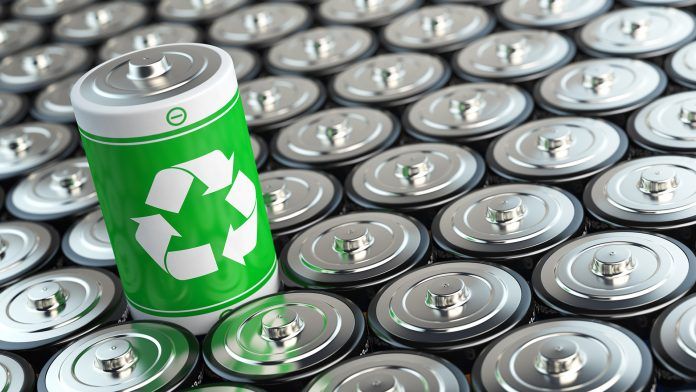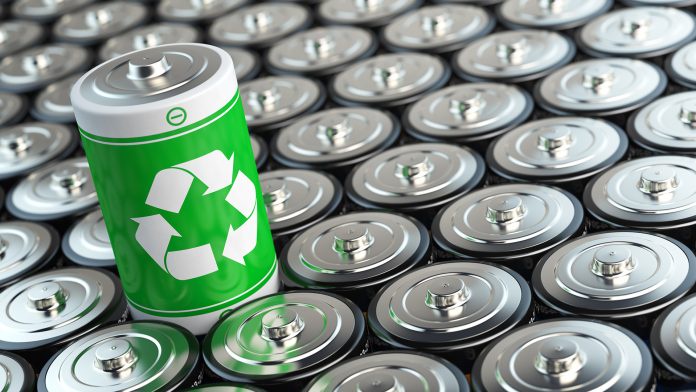Batteries are the unsung heroes of our modern world, providing energy to everything from our smartphones and laptops to electric vehicles and renewable energy systems.

Yet, as we rely on batteries more than ever, the environmental impact of battery disposal has become a growing concern.
Battery recycling is a critical solution to this problem, offering a sustainable approach to managing used batteries and reducing their impact on our planet.
In this article, we delve into the world of battery recycling, exploring its significance, methods, and environmental benefits.
The Significance of Battery RecyclingBattery recycling is not just a matter of convenience; it's a vital component of our global sustainability efforts. Here's why it matters:
1. Resource Conservation: Batteries contain valuable materials like lithium, cobalt, nickel, and lead. By recycling used batteries, we recover these resources, reducing the need for mining and refining raw materials for new batteries. This conservation of resources promotes a circular economy.
2. Environmental Protection:* Improper disposal of batteries in landfills can lead to soil and water contamination due to the release of hazardous chemicals. Battery recycling prevents these pollutants from entering the environment, safeguarding ecosystems and human health.
3. Energy Efficiency: Recycling used batteries consumes significantly less energy than producing new ones from scratch. This energy savings translates into reduced greenhouse gas emissions and a smaller carbon footprint.
4. **Economic Benefits:** Battery recycling can stimulate local economies by creating jobs in the collection, transportation, and processing of used batteries. Moreover, it reduces the costs associated with landfill management and cleanup.
Methods of Battery RecyclingBattery recycling involves several steps, each aimed at recovering valuable materials and ensuring environmental safety:
1. **Collection:** The first step is collecting used batteries from various sources, including households, businesses, and industries. Collection points can be established at recycling centers, retail stores, or through specialized collection programs.
2. **Sorting:** Once collected, batteries are sorted by type (e.g., alkaline, lead-acid, lithium-ion) and size. This sorting helps in the efficient separation of materials during the recycling process.
3. **Breaking Down:** Different types of batteries undergo specific recycling processes. For instance, lead-acid batteries are typically crushed and melted to extract lead, while lithium-ion batteries are disassembled, and their components are processed separately.
4. **Chemical Recovery:** After disassembly or crushing, the recovered materials undergo chemical processes to extract valuable elements like cobalt, lithium, and nickel.
5. **Safety Measures:** Throughout the recycling process, safety measures are in place to manage potentially hazardous materials and prevent environmental contamination.
Environmental Benefits of Battery Recycling
Battery recycling near me offers numerous environmental benefits that help mitigate the negative impact of battery waste:
1. Reduced Landfill Waste: Recycling prevents used batteries from taking up space in landfills, where they can potentially leak harmful chemicals into the soil and groundwater.
2. Lower Greenhouse Gas Emissions: The energy savings achieved through recycling result in reduced greenhouse gas emissions compared to mining and manufacturing new batteries.
3. Conservation of Natural Resources: Recycling reduces the demand for mining raw materials, conserving natural resources and protecting ecosystems.
4. Preventing Environmental Contamination:Proper battery recycling safeguards against the release of hazardous substances into the environment, ensuring cleaner air and water.
ConclusionBattery recycling is a vital part of our journey toward a more sustainable and environmentally responsible future. By recycling used batteries, we conserve valuable resources, protect our environment, and reduce our carbon footprint. As consumers, we can contribute to this effort by responsibly disposing of our old batteries in designated collection points or recycling programs. It's not just about powering our devices; it's about powering a cleaner, greener world for generations to come.


No comments yet